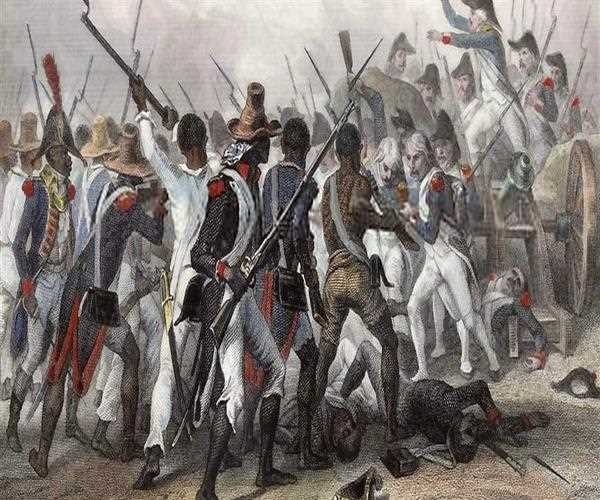In any case, in the mid-1800s when Haiti was a French province known as Saint Domingue, it turned into an encouraging sign to slaves and abolitionists around the world. That is on account of under Gen. Toussaint Louverture's initiative, slaves there figured out how to effectively defy their colonizers, bringing about Haiti turning into a free dark country.

On various events, subjugated blacks and abolitionists in the United States plotted to oust the foundation of servitude, yet their plans were thwarted over and over. The people who endeavored to convey bondage to a radical end paid for their endeavors with their lives.
Subsequent to killing Spanish and British powers, Louverture, Saint Domingue's president, concluded that it was the ideal opportunity for the island to exist as a free country instead of a settlement. As Napoleon Bonaparte, who turned into France's ruler in 1799, plotted to influence French provinces to slave states by and by, blacks on Saint Domingue kept doing combating for their freedom.
Albeit French powers, in the end, caught Louverture, Jean Jacques Dessalines and Henri Christophe drove the charge against France in his nonattendance. The men triumphed, driving Saint Domingue to wind up the West's first sovereign dark country. On Jan. 1, 1804, Dessalines, the new pioneer of the country, renamed it Haiti, or a "higher place."
The Rebellion of Gabriel Prosser
Motivated by the Haitian and American upheavals alike, Gabriel Prosser, a Virginia slave in his mid-20s, set out to battle for his opportunity. In 1799, he brought forth an arrangement to end subjection in his state by involving Capitol Square in Richmond and holding Gov. James Monroe prisoner.
He intended to get bolster from nearby Native Americans, French troops positioned in the zone, working whites, free blacks, and slaves to complete the uprising. Prosser and his partners enrolled men from all finished Virginia to partake in the defiance.
Booked for Aug. 30, 1800, the disobedience hit a tangle when a brutal rainstorm beat Virginia on that day. Prosser needed to cancel the revolt since the tempest made it difficult to cross streets and scaffolds. Lamentably, Prosser could never have the chance to re-dispatch the plot. A few slaves informed their lords regarding the revolt underway, driving Virginia authorities to pay special mind to rebels.
The Plot of Denmark Vesey
In 1822, Denmark Vesey was a liberated person of shading, yet that didn't influence him to despise bondage any less. In spite of the fact that he'd bought his opportunity subsequent to winning the lottery, he couldn't buy the flexibility of his better half and kids.
This appalling situation and his confidence in the fairness of all men persuaded Vesey and a slave named Peter Poyas to put vigorously a huge slave revolt in Charleston, S.C. Just before the uprising was to occur, notwithstanding, a witness uncovered Vesey's plot.